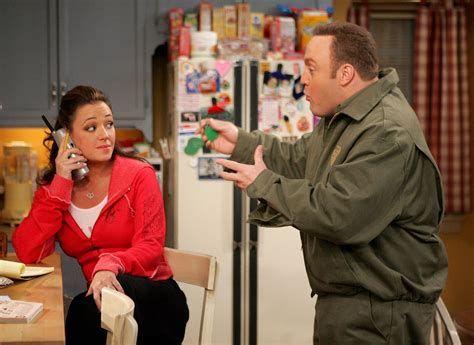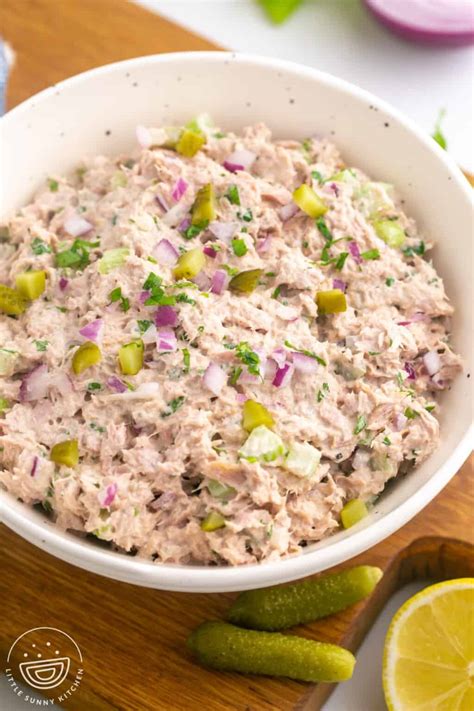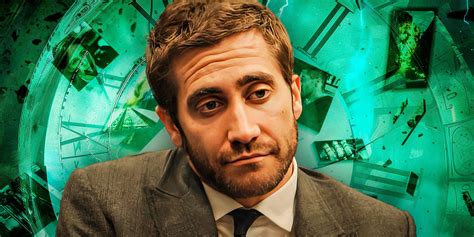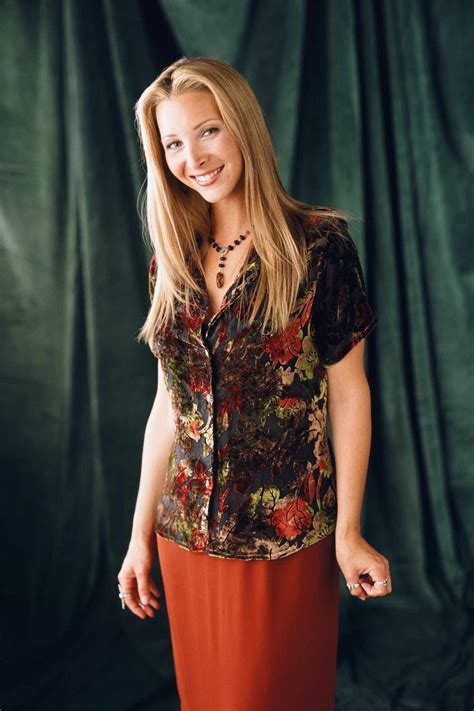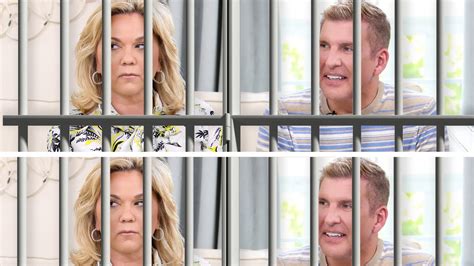
Julie Chrisley’s appearance has drastically changed while serving her prison sentence for bank fraud and tax evasion. A recent photograph circulating online shows Chrisley, known for her meticulously styled hair and makeup, looking noticeably different, prompting widespread discussion about her life behind bars.
Julie Chrisley, 51, is serving a five-year prison sentence at the Federal Medical Center in Lexington, Kentucky. Her husband, Todd Chrisley, is serving a 12-year sentence at a separate facility in Florida. The couple was convicted in June 2022 on charges of conspiring to defraud banks out of more than $30 million, as well as tax evasion. Their sentences began in January 2023.
The photo, which first surfaced on social media, reveals a stark contrast to Julie Chrisley’s carefully curated public image. She is seen without makeup, her hair appearing less styled than usual, and dressed in a standard prison uniform. The image quickly went viral, sparking a range of reactions from surprise to concern. Many commentators noted the visible impact of prison life on her physical appearance, while others speculated about the conditions she is enduring.
“It’s a shocking transformation,” said one social media user. “Prison clearly takes a toll.”
The Chrisleys, who rose to fame with their reality television show “Chrisley Knows Best,” portrayed a life of luxury and affluence. The show chronicled their family dynamics, business ventures, and lavish lifestyle. The conviction and subsequent imprisonment of Julie and Todd Chrisley marked a dramatic fall from grace, exposing a darker side to their seemingly perfect image.
Prior to her incarceration, Julie Chrisley was known for her dedication to beauty and fashion. She often shared her skincare routines, makeup tips, and style advice with her followers on social media. Her commitment to maintaining a polished appearance was a significant part of her public persona.
However, prison life presents a vastly different environment. Inmates are subject to strict rules and regulations, limited access to personal grooming products, and a regimented daily routine. The focus shifts from outward appearances to basic survival and adherence to prison protocols.
The Federal Bureau of Prisons (BOP) has specific guidelines regarding inmate attire and grooming. Inmates are typically required to wear standardized uniforms, which vary depending on the security level of the facility. Personal grooming items, such as makeup and hair styling products, are often restricted or prohibited.
“Inmates are generally allowed to purchase basic hygiene items from the prison commissary,” explained a former corrections officer. “But these items are limited and often of lower quality than what they might be used to on the outside.”
The conditions inside federal prisons can be challenging. Overcrowding, limited resources, and strict rules can contribute to a stressful and difficult environment. Inmates often face long periods of isolation, limited contact with family and friends, and the constant threat of violence or intimidation.
Julie Chrisley’s prison sentence has not only impacted her physical appearance but also her mental and emotional well-being. The loss of freedom, separation from her family, and the stigma of being a convicted felon can take a significant toll on an individual’s psyche.
“It’s important to remember that these are human beings, regardless of their crimes,” said a criminal justice advocate. “Prison is a harsh environment, and it can have devastating effects on a person’s mental and emotional health.”
The Chrisley family has remained largely silent about Julie Chrisley’s prison experience. However, Savannah Chrisley, Julie and Todd’s daughter, has spoken out about the challenges her parents are facing. She has described the emotional toll of their incarceration and the impact it has had on the entire family.
“It’s been a really difficult time for all of us,” Savannah Chrisley said in an interview. “We’re just trying to stay strong and support each other.”
Savannah Chrisley has taken on the responsibility of caring for her younger brother, Grayson, and her niece, Chloe, while her parents are in prison. She has also become an advocate for prison reform, speaking out about the need for better conditions and rehabilitation programs for inmates.
The Chrisley case has raised broader questions about the justice system and the treatment of white-collar criminals. Some critics argue that the Chrisleys’ sentences were excessive, while others maintain that they were held accountable for their actions.
“There’s a debate to be had about whether white-collar criminals are treated too leniently or too harshly,” said a legal analyst. “But in this case, the Chrisleys were found guilty of serious crimes, and they were sentenced accordingly.”
The Chrisley’s legal team has filed appeals in an attempt to overturn their convictions. They argue that the trial was unfair and that the evidence against them was insufficient. However, so far, the appeals have been unsuccessful.
The transformation of Julie Chrisley’s appearance serves as a stark reminder of the realities of prison life. It underscores the physical and emotional toll that incarceration can take on an individual, regardless of their background or social status. It also highlights the importance of addressing the challenges within the prison system and ensuring that inmates are treated with dignity and respect.
The photo of Julie Chrisley has sparked a renewed interest in the Chrisley case and the broader issues surrounding criminal justice reform. As the Chrisleys continue to navigate their legal challenges and serve their sentences, their story serves as a cautionary tale about the consequences of financial misconduct and the realities of life behind bars. The public’s fascination with their case reflects a broader societal interest in celebrity downfalls and the workings of the criminal justice system. This interest is further fueled by the stark contrast between their previous lifestyle of luxury and their current circumstances.
The Chrisley’s legal troubles began with an investigation into their business dealings, which ultimately led to their indictment on multiple counts of bank fraud and tax evasion. Prosecutors presented evidence that the couple had submitted false documents to banks in order to obtain loans and that they had concealed income from the IRS to avoid paying taxes. The Chrisleys maintained their innocence throughout the trial, claiming that they were victims of a conspiracy orchestrated by a former business associate. However, the jury ultimately found them guilty on all counts.
Since their imprisonment, the Chrisleys have faced numerous challenges, including adjusting to the strict routines and limited freedoms of prison life. They have also had to cope with the emotional strain of being separated from their family and the public scrutiny that has followed their case. Despite these challenges, they have reportedly remained resilient and committed to maintaining their innocence.
The future remains uncertain for the Chrisleys. While they have exhausted many of their legal options, they continue to explore potential avenues for appeal. In the meantime, they must serve their sentences and attempt to rebuild their lives after their release. Their story serves as a cautionary tale for anyone tempted to engage in financial misconduct and a reminder of the importance of integrity and accountability.
The media’s portrayal of the Chrisley case has been both sympathetic and critical. Some outlets have focused on the human element of the story, highlighting the impact of their imprisonment on their family and their efforts to maintain hope. Other outlets have emphasized the seriousness of their crimes and the need for justice to be served. Regardless of one’s perspective, it is clear that the Chrisley case has had a significant impact on the lives of all involved and has raised important questions about the criminal justice system and the consequences of financial wrongdoing.
The public’s reaction to the photo of Julie Chrisley underscores the enduring fascination with celebrity culture and the schadenfreude that often accompanies the downfall of public figures. The stark contrast between her former glamorous image and her current appearance in prison has generated a mix of sympathy, curiosity, and condemnation. This reaction also reflects a broader societal interest in the criminal justice system and the disparities in treatment that often exist based on race, class, and celebrity status.
The Chrisley case also highlights the challenges faced by families when a parent or both parents are incarcerated. Children often experience emotional trauma, financial hardship, and social stigma. They may also be forced to take on additional responsibilities, such as caring for younger siblings or managing household finances. Savannah Chrisley’s experience as a caregiver for her younger brother and niece is a testament to the resilience and strength of families facing these challenges.
The Chrisley’s story serves as a reminder that even those who appear to have it all can be vulnerable to temptation and prone to making mistakes. Their case underscores the importance of ethical conduct, financial responsibility, and the need for a fair and just criminal justice system. It also highlights the human cost of crime and the enduring impact it can have on individuals, families, and communities.
The saga of the Chrisley family continues to unfold, with each new development adding another layer to the complex narrative. As they navigate their legal challenges and serve their sentences, their story will continue to be a subject of public interest and debate. The lessons learned from their experience will likely resonate for years to come, serving as a cautionary tale and a reminder of the importance of integrity and accountability.
The photo of Julie Chrisley also opens the door for discussions around beauty standards and the pressure on women, particularly those in the public eye, to maintain a certain image. Her transformation highlights the artificiality of the standards often presented in media and the real-life consequences of not being able to uphold them, especially in environments like prison where resources are scarce. This can lead to a more nuanced conversation about the unrealistic expectations placed on women and the societal judgment they face based on their appearance.
Furthermore, the Chrisley case can be analyzed within the framework of sociological theories concerning crime and deviance. For instance, labeling theory suggests that once individuals are labeled as criminals, it becomes more difficult for them to reintegrate into society, leading to a self-fulfilling prophecy. The Chrisleys, who were once celebrated for their wealth and success, now face the stigma of being convicted felons, which could affect their opportunities and social standing even after their release.
Theories of social stratification also provide insights into the Chrisley case. Their crimes, which involved financial fraud and tax evasion, reflect the opportunities and temptations that arise within a system of unequal wealth distribution. The case raises questions about whether the justice system adequately addresses white-collar crime and whether wealthy individuals are held to the same standards as those from lower socioeconomic backgrounds.
From a psychological perspective, the Chrisley case can be examined through the lens of cognitive dissonance and rationalization. It is possible that the Chrisleys initially engaged in questionable financial practices without fully recognizing the illegality or ethical implications of their actions. Over time, they may have developed rationalizations to justify their behavior, such as believing that they were entitled to the money or that they were not harming anyone.
The Chrisley case also touches on themes of family dynamics and loyalty. Despite the challenges they have faced, the Chrisley family has largely remained united and supportive of one another. This raises questions about the role of family in providing emotional support during times of crisis and the extent to which family members are willing to stand by each other, even in the face of public condemnation.
Finally, the Chrisley case can be analyzed from a legal perspective, examining the specific charges against them, the evidence presented at trial, and the legal arguments raised on appeal. This analysis can shed light on the complexities of financial crime law and the challenges of proving intent and culpability in such cases. It can also raise questions about the fairness and effectiveness of the sentencing guidelines used in white-collar crime cases.
The ripple effects of the Chrisley’s conviction extend beyond their immediate family, impacting their business associates, creditors, and the broader community. The collapse of their financial empire has likely resulted in job losses, financial losses for investors, and a sense of betrayal among those who trusted them. This highlights the far-reaching consequences of financial crime and the importance of holding perpetrators accountable for their actions.
The photo of Julie Chrisley serves as a powerful visual representation of the transformative effects of incarceration. It challenges viewers to consider the human cost of crime and the importance of rehabilitation and reintegration for offenders. It also prompts reflection on the societal values and expectations that shape our perceptions of beauty, success, and justice.
The Chrisley’s story, with all its complexities and contradictions, continues to captivate the public and spark important conversations about crime, justice, and the human condition. As their legal battles continue and they navigate the challenges of prison life, their journey will undoubtedly remain a subject of interest and debate for years to come.
The coverage of Julie Chrisley’s altered appearance is not without ethical considerations. The media must balance the public’s right to know with the individual’s right to privacy, especially in a vulnerable situation like incarceration. Sensationalizing her appearance could be seen as exploitative and could further contribute to the stigma she already faces. Responsible journalism requires a thoughtful and nuanced approach that avoids gratuitous exploitation and focuses on the broader issues at stake.
The Chrisley case also brings into focus the role of reality television in shaping public perceptions of wealth and success. “Chrisley Knows Best” presented a carefully curated image of the Chrisley family’s life, portraying them as wealthy, happy, and successful. However, the reality behind the scenes was far more complex and ultimately led to their downfall. This raises questions about the authenticity of reality television and the extent to which it can distort our understanding of reality.
Frequently Asked Questions (FAQ)
1. What crimes were Julie and Todd Chrisley convicted of?
Julie and Todd Chrisley were convicted of conspiring to defraud banks out of more than $30 million and tax evasion. According to the Yahoo News article, the couple submitted false documents to banks to obtain loans and concealed income from the IRS to avoid paying taxes.
2. Where is Julie Chrisley currently incarcerated, and what is her sentence?
Julie Chrisley is serving a five-year prison sentence at the Federal Medical Center in Lexington, Kentucky.
3. What is the significance of the circulating photo of Julie Chrisley?
The photo reveals a significant change in Julie Chrisley’s appearance, contrasting with her previously meticulously styled public image. She is seen without makeup, her hair less styled, and wearing a standard prison uniform, highlighting the stark realities and impact of prison life.
4. What has Savannah Chrisley said about her parents’ incarceration?
Savannah Chrisley has spoken about the emotional toll of her parents’ incarceration and its impact on the entire family. She has taken on the responsibility of caring for her younger brother and niece and has become an advocate for prison reform.
5. What are some of the challenges Julie Chrisley likely faces in prison?
Julie Chrisley likely faces challenges such as adjusting to strict routines, limited freedoms, limited access to personal grooming products, potential overcrowding, and the emotional strain of being separated from her family and facing public scrutiny.






